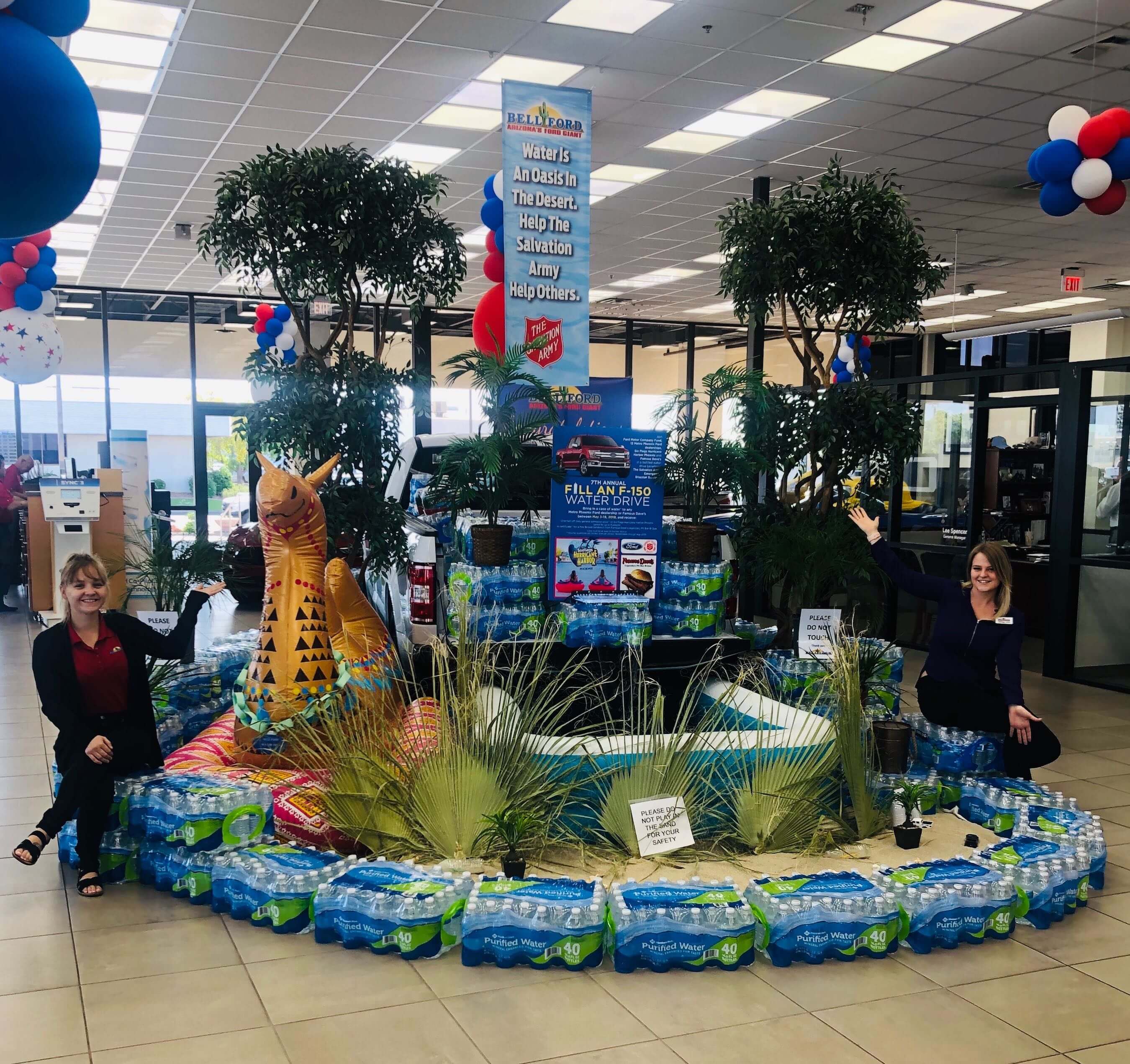Going the distance to make a global difference
By Alison Bailin Batz
If you drive a Ford, chances are your car’s underbody skin came from… a recycling bin?
It’s true!
Ford Recycles
That’s because each year Ford recycles 1.2 billion plastic bottles by using them as underbody shields.
“We are recycling and reusing about 250 bottles per vehicle,” says Sue Rokosz, Ford Motor Company senior environmental engineer, who also notes the use of recycled bottles improves aerodynamics, which could improve fuel economy and result in less noise pollution.
Ford was the first automaker to use recycled plastics for wheel liners on the European Escort back in 2006. Over the past decade, aerodynamics has driven the need for underbody shields, and the global use of plastics in vehicle parts has grown exponentially.
How It Works
“Here’s how it works: when plastic bottles are thrown into a recycling bin, they are collected with thousands of others, and shredded into small pieces,” says Rokosz. “That’s typically sold to suppliers who turn it into a fiber, by melting the bottle and extruding it. Those fibers are mixed together with other various types of fiber in a textile process, and used to make a sheet of material—which is then used to make the automotive parts.”
Ideas like this are nothing new for the brand, which has 35 dealerships across Arizona, including Sanderson Ford, San Tan Ford, Rodeo Ford, and Earnhardt Ford.
“Look at founder Henry Ford. He planted soy on company farms and used it to develop early versions of plastics and other products,” says Rokosz.
Current Executive Chairman William Ford Jr. takes it just as seriously.
“He walks the walk when it comes to our promise to be an always-greener Ford,” says Rokosz. “He committed to use 100% renewable energy in all of our manufacturing plants by 2035. And, he committed Ford to eliminating single-use plastics at all worldwide operations by 2030.”
Importance of Sharing
Something else that amplifies impact: sharing.
“We’re all in this together,” says Rokosz. “As such, we are especially proud of PACE, which stands for Partnership for A Cleaner Environment, and focuses on ways we can help our supplier partners implement sustainable initiatives in their operations.”
One of PACE’s biggest success stories is focused on water.
“Since 2000, we’ve been able to reduce water use per vehicle by 61%. By 2020, we expect to reduce use by nearly 75%,” says Rokosz. “Through PACE, we’ve helped our suppliers to implement some of these initiatives in their facilities, and helped them to share learnings down the supply chain, magnifying the impact.”
Speaking of water, helping conserve it and provide it to those in need is of particular importance to Ford.
“Many of our plants are in areas where access to clean water is an issue,” says Rokosz.
As such, Ford has Ford Fund, focused on helping people gain access to things they need most in order to reach their full potential, including helping them gain access to clean water.
“Getting involved should be part of everyone’s business mission, at all levels,” says Rokosz.
This sentiment is echoed locally. For example, Phoenix-area Ford dealers launched “Fill an F-150” to help The Salvation Army during summer months. Since its launch in 2012, more than 700,000 bottles have been collected.
“If we work together, we can drive the world forward with care and meaningful innovation,” says Rokosz.
Keep up with all of Green Living’s Green Champions by visiting our website.
Alison Bailin Batz is a freelance writer based in Phoenix. She has covered the Valley business and entertainment scene for more than a decade, and also writes on food, drink and travel across the country. To reach her, email abailin@hmapr.com
.







